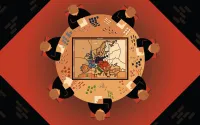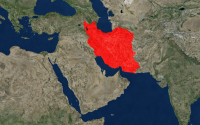Many AuthorsZnet21 April 2010
Mother Earth can live without us, but we can’t live without her. We, the Indigenous Peoples, nations and organizations from all over the world, gathered at the World Peoples’ Conference on Climate Change and the Rights of Mother Earth, from April 19th to 22nd, 2010 in Tiquipaya, Cochabamba, Bolivia, after extensive discussions, express the following: We Indigenous Peoples are sons and daughters of Mother Earth, or “Pachamama” in Quechua. Mother Earth is a living being in the universe that concentrates energy and life, while giving shelter and life to all without asking anything in return, she is the past, present and future; this is our relationship with Mother Earth. We have lived in coexistence with her for thousands of years, with our wisdom and cosmic spirituality linked to nature. However, the economic models promoted and forced by industrialized countries that promote exploitation and wealth accumulation have radically transformed our relationship with Mother Earth. We must assert that climate change is one of the consequences of this irrational logic of life that we must change. The aggression towards Mother Earth and the repeated assaults and violations against our soils, air, forests, rivers, lakes, biodiversity, and the cosmos are assaults against us. Before, we used to ask for permission for everything. Now, coming from developed countries, it is presumed that Mother Earth must ask us for permission. Our territories are not respected, particularly those of peoples in voluntary isolation or initial contact, and we suffer the most terrible aggression since colonization only to facilitate the entry of markets and extractive industries. We recognize that Indigenous Peoples and the rest of the world live in a general age of crises: environmental, energy, food, financial, ethical, among others, as a consequence of policies and attitudes from racist and exclusionary states. We want to convey that at the Copenhagen Climate Conference, the peoples of the world demanded fair treatment, but were repressed. Meanwhile the states responsible for the climate crisis were able to weaken even more any possible outcome of negotiations and evade signing onto any binding agreement. They limited themselves to simply supporting the Copenhagen Accord, an accord that proposes unacceptable and insufficient goals as far as climate change action and financing to the most affected countries and peoples. We affirm that international negotiation spaces have systematically excluded the participation of Indigenous Peoples. As a result, we as Indigenous Peoples are making ourselves visible in these spaces, because as Mother Earth has been hurt and plundered, with negative activities taking place on our lands, territories and natural resources, we have also been hurt. This is why as Indigenous Peoples we will not keep silent, but instead we propose to mobilize all our peoples to arrive at COP16 in Mexico and other spaces well prepared and united to defend our proposals, particularly the “living well” and plurinational state proposals. We, Indigenous Peoples, do not want to live “better”, but instead we believe that everyone must live well. This is a proposal to achieve balance and start to construct a new society. The search for common objectives, as history shows us, will only be completed with the union of Indigenous Peoples of the World. The ancestral and indigenous roots shared by the whole world must be one of the bonds that unite us to achieve one unique objective. Therefore we propose, require and demand: 1. The recovery, revalidation and strengthening of our civilizations, identities, cultures and cosmovisions based on ancient and ancestral Indigenous knowledge and wisdom for the construction of alternative ways of life to the current "development model", as a way to confront climate change. 2. To rescue and strengthen the Indigenous proposal of “living well”, while also recognizing Mother Earth as a living being with whom we have an indivisible and interdependent relationship, based on principles and mechanisms that assure the respect, harmony, and balance between people and nature, and supporting a society based on social and environmental justice, which sees life as its purpose. All this must be done to confront the plundering capitalist model and guarantee the protection of life as a whole, through the search for inclusive global agreements. 3. We demand States to recognize, respect and guarantee the application of international standards of human rights and Indigenous Peoples’ rights (i.e., The UN Declaration on the Rights of Indigenous Peoples, ILO Convention 169) in the framework of negotiations, policies, and measures to confront climate change. 4. We demand States to legally recognize the preexistence of our right to the lands, territories, and natural resources that we have traditionally held as Indigenous Peoples and Nations, as well as restitution and restoration of natural goods, water, forests and jungles, lakes, oceans, sacred places, lands, and territories that have been dispossessed and seized. This is needed to strengthen and make possible our traditional way of living while contributing effectively to climate change solutions. Inasmuch, we call for the consolidation of indigenous territories in exercise of our self-determination and autonomy, in conformity with systems of rules and regulations. At the same time we demand that states respect the territorial rights of Indigenous Peoples in voluntary isolation or in initial contact, as an effective way to preserve their integrity and combat the adverse effects of climate change towards those peoples. 5. We call on States not to promote commercial monoculture practices, nor to introduce or promote genetically-modified and exotic crops, because according to our people’s wisdom, these species aggravate the degradation of jungles, forests and soils, contributing to the increase in global warming. Likewise, megaprojects under the search for alternative energy sources that affect Indigenous Peoples’ lands, territories, and natural habitats should not be implemented, including nuclear, bio-engineering, hydroelectric, wind-power and others. 6. We demand changes to forestry and environmental laws, as well as the application of pertinent international instruments to effectively protect forests and jungles, as well as their biological and cultural diversity, guaranteeing Indigenous Peoples’ rights, including their participation and their Free, Prior, and Informed Consent. 7. We propose that, in the framework of climate change mitigation and adaptation measures, states establish a policy that Protected Natural Areas must be managed, administered and controlled directly by Indigenous Peoples, taking into account the demonstrated traditional experience and knowledge towards the sustainable management of the biodiversity in our forests and jungles. 8. We demand a review, or if the case warrants, a moratorium, to every polluting activity that affects Mother Earth, and the withdrawal of multinational corporations and megaprojects from Indigenous territories. 9. We urge that states recognize water as a fundamental human right, avoiding its privatization and commodification. 10. We demand the application of consultations, participation, and the Free, Prior and Informed Consent of Indigenous Peoples and affected populations in the design and implementation of climate change adaptation and mitigation measures and any other intervening actions on Indigenous territories. 11. States must promote mechanisms to guarantee that funding for climate change action arrives directly and effectively to Indigenous Peoples, as part of the compensation for the historical and ecological debt owed. This funding must support and strengthen our own visions and cosmovisions towards “living well”. 12. We call for the recovery, revalidation and strengthening of Indigenous Peoples’ technologies and knowledge, and for their incorporation into the research, design and implementation of climate change policies. This should compliment Western knowledge and technology, ensuring that technology transfer processes do not weaken indigenous knowledge and technologies. 13. We propose the recovery, development and diffusion of indigenous knowledge and technology through the implementation of educational policies and programs, including the modification and incorporation of such knowledge and ancestral wisdom in curricula and teaching methods. 14. We urge States and international bodies that are making decisions about climate change, especially the UNFCCC, to establish formal structures and mechanisms that include the full and effective participation of Indigenous Peoples. They must also include local communities and vulnerable groups, including women, without discrimination, as a key element to obtain a fair and equitable result from climate change negotiations. 15. We join in the demand to create a Climate Justice Tribunal that would be able to pass judgement and establish penalties for non-compliance of agreements, and other environmental crimes by developed countries, which are primarily responsible for climate change. This institution must consider the full and effective participation of Indigenous Peoples, and their principles of justice. 16. We propose the organization and coordination of Indigenous Peoples worldwide, through our local, national, regional, and international governments, organizations, and other mechanisms of legitimate representation, in order to participate in all climate change related processes. With that in mind, we call for an organizational space to be created that will contribute to the global search for effective solutions to climate change, with the special participation of Elders. 17. We propose to fight in all spaces available to defend life and Mother Earth, particularly in COP16, and so we propose a 2nd Peoples’ Conference to strengthen the process of reflection and action. 18. The ratification of the global campaign to organize the World March in defense of Mother Earth and her peoples, against the commodification of life, pollution, and the criminalization of Indigenous and social movements. Created in unity in Tiquipaya, Cochabamba, Bolivia, the 21st day of April, 2010.






